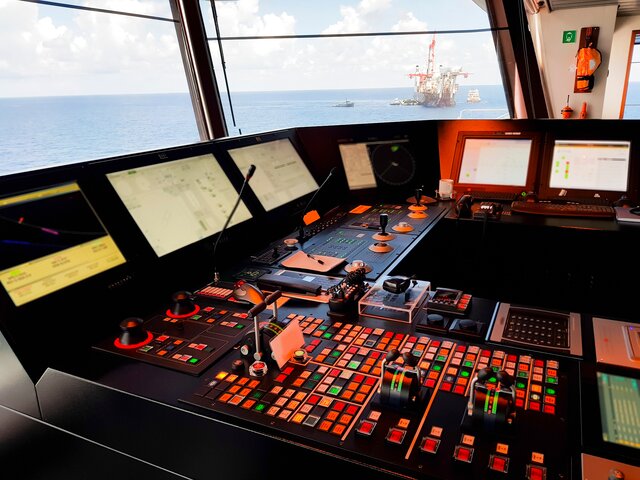
Senior Mechanical Engineer
MEng, PhD, CEng, IMechE
work
Glasgow
Career Summary
Nick is a Chartered Engineer and has been a Mechanical Engineer at Brookes Bell since 2005. He obtained MEng in Mechanical Engineering with Energy Studies from The University of Strathclyde in 1999 and a PhD in fluid mechanics research in 2005. He has advised clients as an independent expert on a number of legal cases and given evidence in arbitration in the UK, Europe and the United States.
Background
Academic Qualifications
- MEng Mechanical Engineering with Energy Studies (with distinction) Strathclyde University Glasgow, UK.
- PhD Mechanical Engineering Strathclyde University Glasgow, UK.
Professional Qualifications
- Imperial College Tribology Course: Friction, Wear and Lubrication.
- TWI BS 7910 Fatigue Analysis Course.
Previous Employment History
- Cadogan Consultants, Glasgow.
- Queens University, Kingston, Ontario Canada.
- LCF Enterprises, Camarillo, USA.
Engineering and Consultancy Experience
Hydrodynamics
- Wave impact investigation for vessel incident and resulting personal injury. Analysis of vessel and channel current speed to allow two-phase hull analysis and calculation of generated wave height to assess impact on reported incident.
- Ship passing investigations where ship to ship interaction forces have caused unmooring and subsequent damage. Detailed modelling of all relevant environmental conditions and explicit motions of vessels are required to assess effect on each incident.
- Investigations into vessel impact and resulting damage in berthing operations, encompassing shallow water effects and manoeuvring.
- Vessel capsize investigations, encompassing vessel manoeuvring and seakeeping with effect of cargo shifts included.
- Propeller, stern/bow thruster and azimuth ducted thruster investigations and analyses for vibration effects and hull/rudder interaction and forces for newbuild disputes and incident investigations.
- Cargo sloshing investigation for potential impact on vessel incident.
- Cargo loading thermal analysis for investigation of potential for cooling and solidification of cargo alleged to be responsible for damage to cargo hold.
- Wave force investigation for damage to near-shore cooling water pipe installation for power station. Investigation included wave force impact on subsea pipe installation and resulting potential pipe motion and damage.
- Investigation of potential particle contamination in power station hydraulic system for observed damage to power station components. Investigation involved particle tracking methods for calculated hydraulic flows.
- Hull resistance design and optimisation studies. Extensive design studies involving two-phase (water and air) analyses of vessel performance.
- Stability fin and stability at rest (SAR) design studies for vessel motion control. Extensive design studies of stabiliser fins including novel concept design.
- Cruise vessel pool sloshing design studies for route specific vessel operation. Two-phase analyses of pool behaviour for identified vessel motions according to planned vessel routes.
- Design study of probability of bubble sweep-down for research vessel operating in waves and consequence for the vessel’s under-hull observation gondola, applying overset CFD and particle tracking.
- Tidal turbine design studies for thermal performance of nacelle during operation. Analyses of internal and external heat transfer properties calculating cooling capacities for generated heat loads during operation.
Aerodynamics
- Investigation of open deck gas dispersion for potential ignition of leaked explosive gases resulting in vessel fire. Investigation required gas dispersion analysis in external wind conditions and analysis of concentration levels of gas at possible ignition areas.
- Investigation of fatal engine room fire incident while gas freeing operations were occurring. Investigation required gas dispersion analysis of flammable gas release and analysis of gas concentrations throughout engine room, with various engine room ventilation scenarios.
- Calculation of vessel wind force coefficients for vessel manoeuvring design. Requires the full superstructure geometry to be included with all relevant environmental conditions.
- Wind and thermal comfort of exposed cruise vessel deck areas. Extensive design studies for cruise vessels requiring detailed analysis of whole vessel superstructure and environmental conditions in all open deck areas.
- Funnel performance design studies to ensure funnel meets required performance criteria, as well as toxic exposure limits for alternative fuels, using dispersion analysis techniques. Extensive design studies involving detailed analysis of funnel and whole vessel superstructure.
- Scrubber performance design studies assessing impact of location of scrubber unit for vessel operation.
- Wind force design studies for vessel structures, including vortex induced vibration studies. Detailed design analyses and force calculation of numerous vessel component for assessment of structural integrity and safety.
- Helipad design study to ensure location and design allows safe operating wind turbulence and temperature criteria to be met.
- HVAC design optimisation study for cruise vessel assessing multiple HVAC conditioning units and control systems specific to vessel route itinerary.
- HVAC study of performance of COVID-19 infection mitigation measures for cruise vessel public spaces. Dispersion analysis and particle tracking techniques applied to assess effectiveness of HVAC system filtering of virus and potential for virus spread.
- CAP 437 helideck analyses.
Hydraulics
- Investigation into oil spill volume via damage to hold requiring calculation of discharge coefficient of damage area and hydraulic calculation of oil flow over incident time period.
- Investigations of cargo contamination in holds due to potential over-pressurisation in pipe system. Hydraulic calculations of pipe system for incident conditions and calculation of potential volumes of contaminant liquid.
- Engine room and hold flooding hydraulic calculations, cross-flooding hydraulic calculations incorporating vessel motion, pump operation and differential pressures according to particular incident.
- Cargo tank rupture investigations and analyses. Time-dependent compressible flow hydraulic analyses investigating effects of loading, blowing and pigging operations.
Fire Investigation
- Investigation of fire on board vessels including review of safety procedures, documentation relevant to incident, interview of witnesses and personnel involved and assessment of damage areas.
- Car carrier hold fire investigation into effectiveness of CO2 fire extinguishing system for fire incident. Investigation required modelling of CO2 extinguishing system into hold and fire combustion products. CO2 concentrations were calculated throughout the hold and their effect on fire extinguishing was assessed, accounting for potential leakage of CO2 though the ventilation arrangement of hold.
- Extensive design studies for alternative design arrangements on cruise vessel internal and external areas, and warehouses. This requires the modelling of fire scenarios and associated heat and combustion products to assess the safety of the design arrangements in terms of life tenability criteria such as radiation, temperature, visibility and toxicity for passenger evacuation procedures.
- Fire modelling design study for fire test enclosure with effects of external environmental conditions on fire and combustion products.
- Fire modelling design studies for effects of thermal radiation and heat transfer to surrounding areas and equipment, including flammable/explosive materials and lifesaving equipment.
Mechanical Engineering
- Investigations into several design defects on canal lock infrastructure including valve and lock gates.
- JAWA Power Station (Indonesia) gas turbine power plant RCA investigations.
- Bearing failure investigations.
- Container stack force analyses for collapsed containers during transport.
- Fatigue failure analyses.
- Crane failure investigations.
- Rigid body dynamics calculations for mooring impact damage.
- Material damage from object impact investigation.
- Root Cause Analysis investigations for propulsion system failure.

